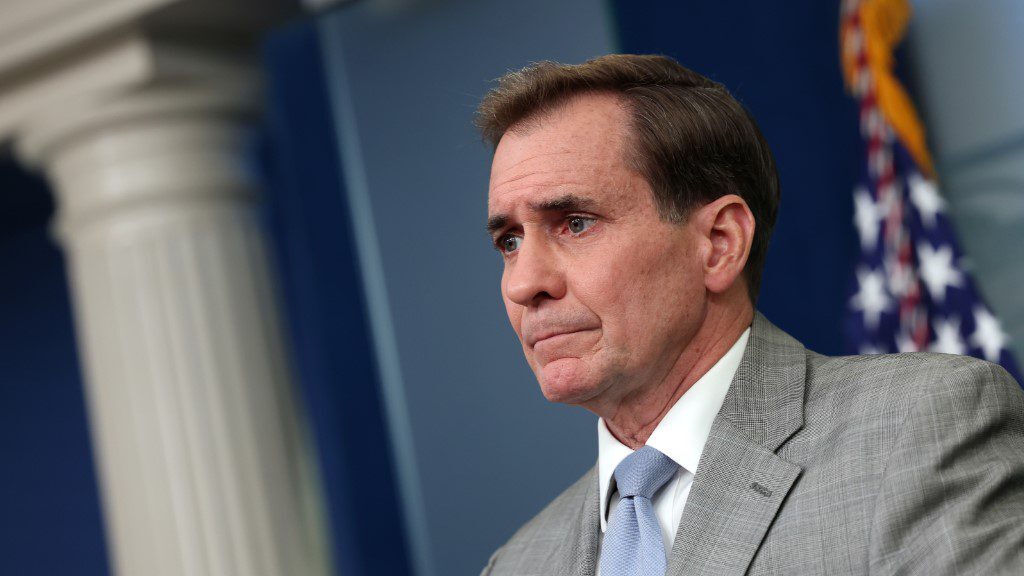
John Kirby, Coordinator for Strategic Communications at the National Security Council.
Photo: Kevin Dietsch / GETTY IMAGES NORTH AMERICA / Getty Images via AFP
The number of U.S. soldiers deployed in Europe has reached 100,000—a number not seen since the end of the Cold War—John Kirby, the head of Strategic Communications in President Biden’s National Security Council, said during a press briefing in Washington on Wednesday, August 16th.
Since the beginning of the war, Kirby noted, President Biden has increased the U.S. military presence in the allied European countries—particularly along NATO’s eastern flank—by over 20,000 troops. He added that the White House
has put in place processes where we can keep that presence there for the long haul. Rotational but they’ll be able to stay. So we’re up around 100,000 troops in the European theater right now, which is the most in many, many years since the Cold War.
The Security Council spokesman also stressed that, were there any additional demands from allies, Washington is prepared to send further contingents to be stationed in Europe indefinitely.
Discussing the security situation on NATO’s eastern flank, Kirby condemned the “provocative actions” and “bellicose, pugilistic rhetoric” that is coming out of Belarus and reassured the audience that the U.S. is ready to defend “every inch of NATO territory” and that it takes its commitment to Article 5 very seriously.
He also stated that Washington remains in close contact with Warsaw, and that for the Poles, the Belarussian threats are not merely rhetorical exercises but a constant reality. “They live with that every single day,” Kirby said, “and we respect that, we understand that.”
For these reasons, the U.S. is paying special attention to what is happening in Belarus, especially since a contingent of Wagner fighters appeared in the country following their leader’s failed coup attempt. As Kirby stated:
We listen to what’s coming out of Minsk. [And] we’re certainly mindful of the movement [of Wagner troops], we certainly are mindful of these recent events. But we haven’t moved anything as a result. If we need to do that, certainly we could. We take it seriously.”
Talking strictly about the Wagner Group, Kirby noted that it was still unclear what territorial threat the Belarussian presence of the mercenaries posed. Nonetheless, the White House is “watching this as closely as [it] can.”
Poland is not the only country that has been wary of a possible Wagner-led invasion from Belarus since the coup. On Wednesday, Lithuania closed down two of its six border crossing points with the country, citing “geopolitical circumstances.”
Meanwhile, Latvia has only two operational crossings left with Belarus, while Poland has closed down all but one in recent months. Warsaw also announced last week that it would move 10,000 additional troops to strengthen its eastern border with the country.
